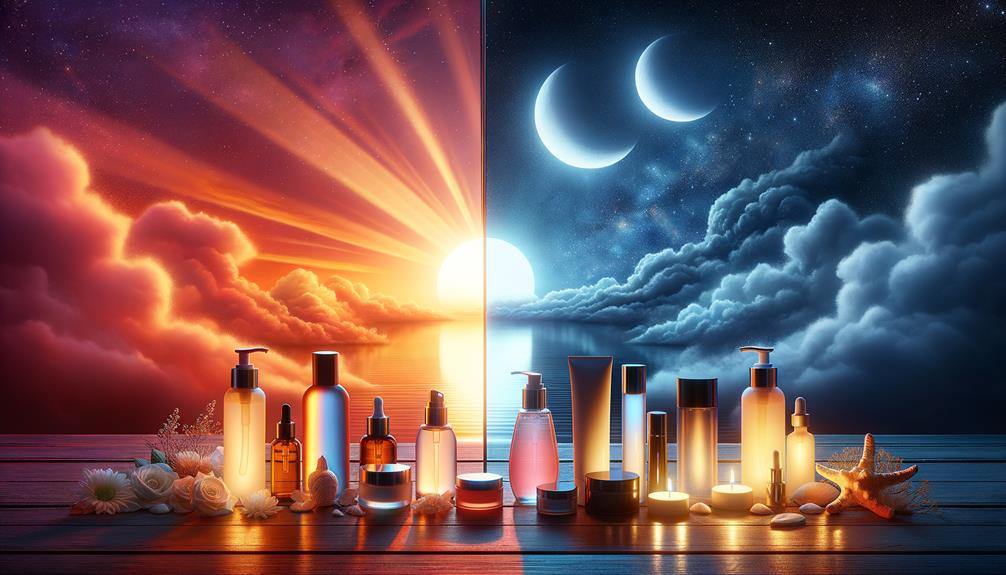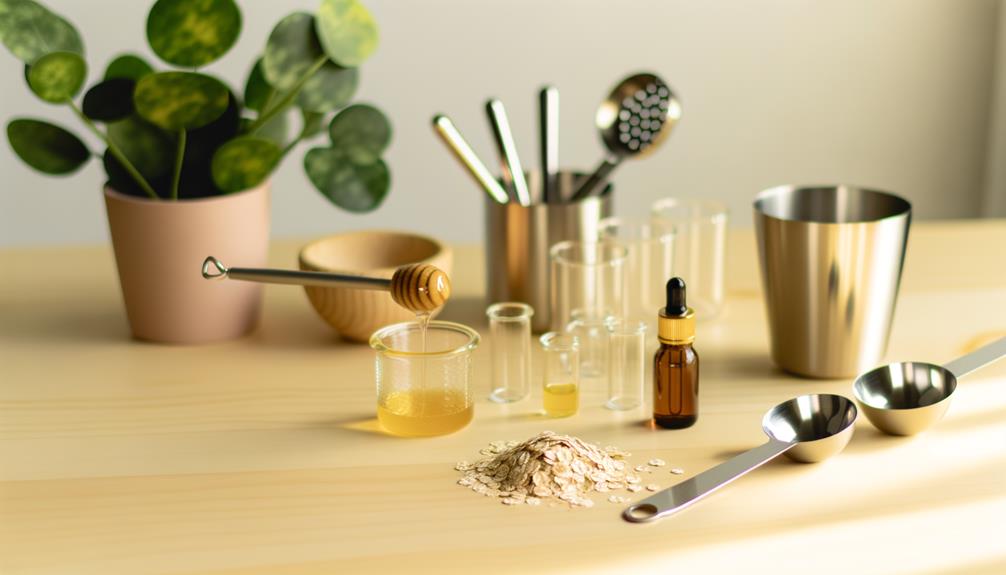This article shares 14 crucial skin care rules for people with dry skin. These rules can help you have hydrated and glowing skin, whether you’re dealing with tightness and rough patches or want to prevent moisture loss. We’ll cover everything from choosing the right cleanser to using moisturizers effectively. These rules help people with dry skin overcome challenges and improve their skincare routine. If you’re ready to say goodbye to dry skin and hello to healthy, nourished skin, let’s explore these 14 skin care tips for dry skin.
Table of Contents
ToggleHow Do I Know If I Have Dry Skin?
Dry skin can show up in a few common ways. If your skin is flaky, itchy, rough, or tight, it might mean you have dry skin. Also, if your skin is sensitive, red, or easily irritated, it could indicate dryness. Another sign is if your skin looks dull and doesn’t have a healthy glow. You can do a simple test to check for dry skin by pressing clear tape onto different parts of your face and then gently removing it. If the tape shows flakes or small bits of skin, you probably have dry skin. It’s important to notice these signs and consider changing your skincare routine to deal with the problem.
Neutrogena Deep Clean Brightening Cleansing Oil Review
14 Skin Care Rules for Dry Skin
If you suffer from skin care tips for dry skin, following these guidelines will significantly improve the appearance and texture of your skin.
Wash Your Face With Lukewarm Water
To take care of dry skin, use lukewarm water to wash your face. Hot water can remove natural oils and make your skin even drier. Lukewarm water cleans your skin without taking away its moisture. It also opens up pores for better cleansing and reduces the risk of redness and irritation. Following this simple step can help you maintain healthy skin and minimize discomfort. Choosing the right water temperature for washing your face can make a big difference in your skincare routine.

Use a Gentle Cleanser
To care for dry skin, use a gentle cleanser. Harsh cleansers can remove natural oils and make dryness worse. Choose a hydrating cleanser for dry skin with ingredients like hyaluronic acid, glycerin, or ceramides. These ingredients clean and hydrate the skin. Use a creamy or non-foaming formula to avoid drying out the skin. Wash your face once or twice a day with a gentle cleanser to prevent worsening dryness. Also, remember to moisturize regularly to keep your skin comfortable and radiant.
Don’t Be Afraid to Exfoliate
Exfoliating is essential for people with dry skin. It can make a big difference if done correctly. Instead of being worried about exfoliating, see it as a critical part of your skincare routine. Removing dead skin cells can reveal smoother, softer skin and help moisturizers work better. Use chemical exfoliants like lactic acid or glycolic acid, which are gentler than physical scrubs and less likely to irritate.
When exfoliating dry skin, less is better. Too much exfoliation can remove the natural oils that protect your skin and worsen dryness. Start with once or twice a week and adjust based on how your skin reacts. Afterward, use a hydrating serum or moisturizer to replace lost moisture and keep your skin balanced. With the right approach, exfoliation can be a powerful way to manage dry skin and achieve better skin.
Use a Hyaluronic Acid Serum
A hyaluronic acid serum can help people with dry skin. It can attract and keep moisture, giving much-needed hydration to dry skin. Unlike heavy creams or oils, hyaluronic acid serums are light and easy to absorb, so they’re great for daily use. One of the main benefits of hyaluronic acid is that it can make the skin look plumper, reducing the appearance of fine lines and wrinkles. This makes it a great addition to any anti-ageing skincare routine. Also, by keeping the skin well-hydrated, hyaluronic acid can help improve dry skin’s overall texture and glow, making it look more supple and youthful.
Select Your Moisturizer Wisely
Choosing the right moisturizer is essential for people with dry skin. Look for ingredients like hyaluronic acid, glycerin, or shea butter for deep hydration and lasting moisture. Also, consider a ceramide product to help restore the skin’s natural barrier and prevent water loss. Understanding your skin type and needs will help you pick a moisturizer that nourishes you without feeling heavy or greasy.
Avoid moisturizers with alcohol, fragrances, or harsh chemicals, as these can further dehydrate and irritate dry skin. Instead, choose gentle, fragrance-free formulas focusing on repairing and replenishing skin moisture. Thicker creams are better for nighttime use, while lighter lotions or serums provide daytime hydration without feeling too heavy under makeup.
Apply Moisturizer to Damp Skin
Applying moisturizer to slightly wet skin is excellent for people with dry skin. When your skin is a little wet, it helps the moisturizer soak in better, making your skin more hydrated. This simple but effective trick keeps the moisture in and locks it into the deeper layers of your skin, leaving you with a glowing and soft face. For people with dry skin, this method helps. By putting moisturizer on damp skin, you’re boosting your skincare routine and ensuring your dry skin gets all the nourishment it needs. This also helps stop water from leaving your skin, so it’s an essential step in any dry skin routine.
Top Your Moisturizer Off With Facial Oil
If you have dry skin, you know it’s tough to keep it hydrated all day. One great way to boost your moisturizing routine is using facial oil as the final step. Moisturizers lock in hydration, but facial oils seal in moisture and protect the skin. Look for oils with nourishing ingredients like argan oil, jojoba oil, or rosehip oil. These oils have antioxidants and fatty acids that restore moisture balance. Using facial oil on top of your moisturizer can also give your skin a natural glow without feeling greasy.
Apply SPF Daily
It’s crucial to protect your skin from the sun to keep it healthy, especially if it’s dry. Using SPF every day helps prevent sunburn, skin cancer, and premature ageing. If you have dry skin, choose a sunscreen that protects against both UVB and UVA rays and keeps your skin hydrated. Look for SPF products with ingredients like hyaluronic acid, glycerin, or ceramides to keep your skin moisturized all day. You can use lightweight, non-comedogenic sunscreen that won’t clog pores or make your skin drier. Remember to reapply sunscreen, especially if you’re outside for a long time or doing activities like swimming or sports.
Don’t Forget to Hydrate Your Lips
It’s important to keep our lips hydrated, especially if we have dry skin. Our lips can get dry and cracked from the weather and lack of moisture. Using lip balms and moisturizers can help keep them soft. You should make hydrating your lips a part of your daily routine. Look for products with natural ingredients like shea butter or coconut oil. Also, drinking enough water can help keep your lips moist.
Use Hydrating Makeup Formulas
Welcome to the world of hydrating makeup. If you have dry skin, it’s essential to follow specific skincare rules for flawless makeup. Hydrating makeup not only covers but also nourishes thirsty skin. Choose products with moisture-boosting ingredients like hyaluronic acid and glycerin. For dry skin, choose hydrated or dewy finishes for a natural, luminous look. Look for lightweight formulas that offer buildable coverage without caking or accentuating dry patches. Using a hydrating primer can create a smooth canvas and help your makeup last longer.
Consider Your Makeup Application Techniques
To apply makeup on dry skin, use techniques that keep moisture and enhance the natural glow. Start with a hydrating primer for a smooth base and extra hydration. Avoid using too much powder, as it can make dry patches more noticeable. Instead, use cream-based foundations and blushes for a radiant look. When applying makeup, gently pat or stipple with brushes or sponges to avoid irritation and ensure even coverage. Look for makeup with hydrating ingredients like hyaluronic acid and glycerin for lasting moisture.
Fake Your Way to Glowing Skin
To get glowing skin, you can use makeup to make it look like you have a healthy and radiant complexion. If you have dry skin, use makeup products that make your skin look dewy. Use primers and foundations that hydrate your skin and make it look shiny. Also, use highlighters to make your features stand out and give you a natural glow. It’s important to have a skincare routine for dry skin to keep your skin looking radiant. Use moisturizers with hyaluronic acid and oils to keep your skin hydrated and soft. Exfoliate regularly with gentle exfoliants to make your skin smoother and more radiant.
Use a Hydrating Facial Mist
Hydrating facial mists are great for people with dry skin. The mist moisturizes and refreshes the skin, so it’s important for your skincare routine. They contain ingredients like hyaluronic acid and glycerin to lock in moisture without feeling heavy or greasy. You can use them throughout the day to keep your skin hydrated and prevent tight, uncomfortable feelings. Facial mists also help set makeup and give a dewy finish, instantly revitalizing dull-looking skin. They’re good for a quick refresh during the day and are especially helpful when travelling or in dry climates. They help maintain your skin’s natural radiance and suppleness in any environment.
Use a Humidifier
Dry skin is common, especially in winter. A humidifier can help by adding moisture to the air, preventing water loss from the skin. This can stop flakiness and irritation. A humidifier can also help with breathing problems by keeping the air moist. It can also make skincare products work better. Remember to clean the humidifier to stay healthy and have better-looking skin.
12 Makeup Skin Care Hybrid Products With Major Benefits for Your Complexion
Conclusion
To take care of dry skin care rules, you need to clean it gently, use moisturizer regularly, and protect it. If you do these things every day, you can manage your dry skin and make it look and feel better. It’s important to be consistent and patient because you might not see results right away. You can also talk to a dermatologist or skincare expert for personalized advice. Make these skin care tips for dry skin a priority in your self-care routine to improve your skin’s health.
FAQs
What are the common causes of dry skin?
Dry skin can be caused by a variety of factors, including environmental conditions, lifestyle choices, and underlying health issues. Exposure to harsh weather, such as cold or dry air, can strip the skin of its natural moisture and lead to dryness. Similarly, frequent hot showers or baths can also contribute to dry skin by removing the skin’s natural oils.
Can diet affect dry skin?
Yes, diet can definitely affect dry skin. A diet lacking in essential fatty acids, such as omega-3 and omega-6, can contribute to dry and flaky skin. These fatty acids help maintain the skin’s natural moisture barrier and promote healthy skin cell function. Including sources of these fatty acids in your diet, such as fish, flaxseeds, and walnuts, can help improve dry skin.
Is exfoliation beneficial for dry skin?
Exfoliating is good for dry skin because it removes dead skin cells and makes skin smoother and softer. It also helps moisturizers and skincare products work better. But it’s important to use gentle exfoliants made for dry skin, as harsh ones can make dryness worse.







